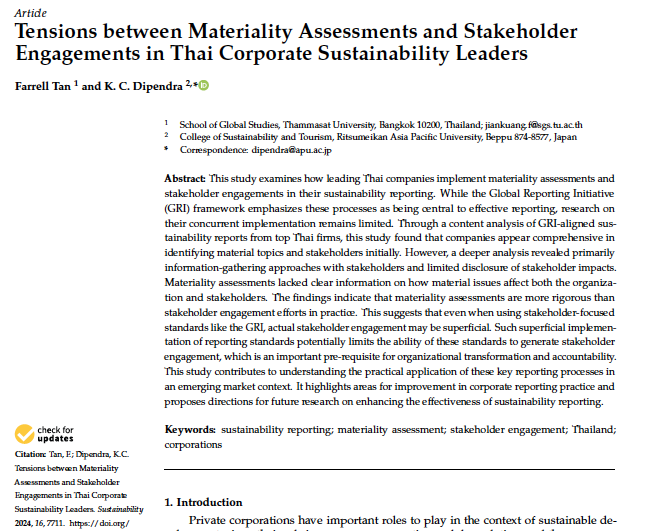This study examines how leading Thai companies implement materiality assessments and stakeholder engagements in their sustainability reporting. While the Global Reporting Initiative (GRI) framework emphasizes these processes as being central to effective reporting, research on their concurrent implementation remains limited. Through a content analysis of GRI-aligned sustainability reports from top Thai firms, this study found that companies appear comprehensive in identifying material topics and stakeholders initially. However, a deeper analysis revealed primarily information-gathering approaches with stakeholders and limited disclosure of stakeholder impacts. Materiality assessments lacked clear information on how material issues affect both the organization and stakeholders. The findings indicate that materiality assessments are more rigorous than stakeholder engagement efforts in practice. This suggests that even when using stakeholder-focused standards like the GRI, actual stakeholder engagement may be superficial. Such superficial implementation of reporting standards potentially limits the ability of these standards to generate stakeholder engagement, which is an important pre-requisite for organizational transformation and accountability. This study contributes to understanding the practical application of these key reporting processes in an emerging market context. It highlights areas for improvement in corporate reporting practice and proposes directions for future research on enhancing the effectiveness of sustainability reporting.
